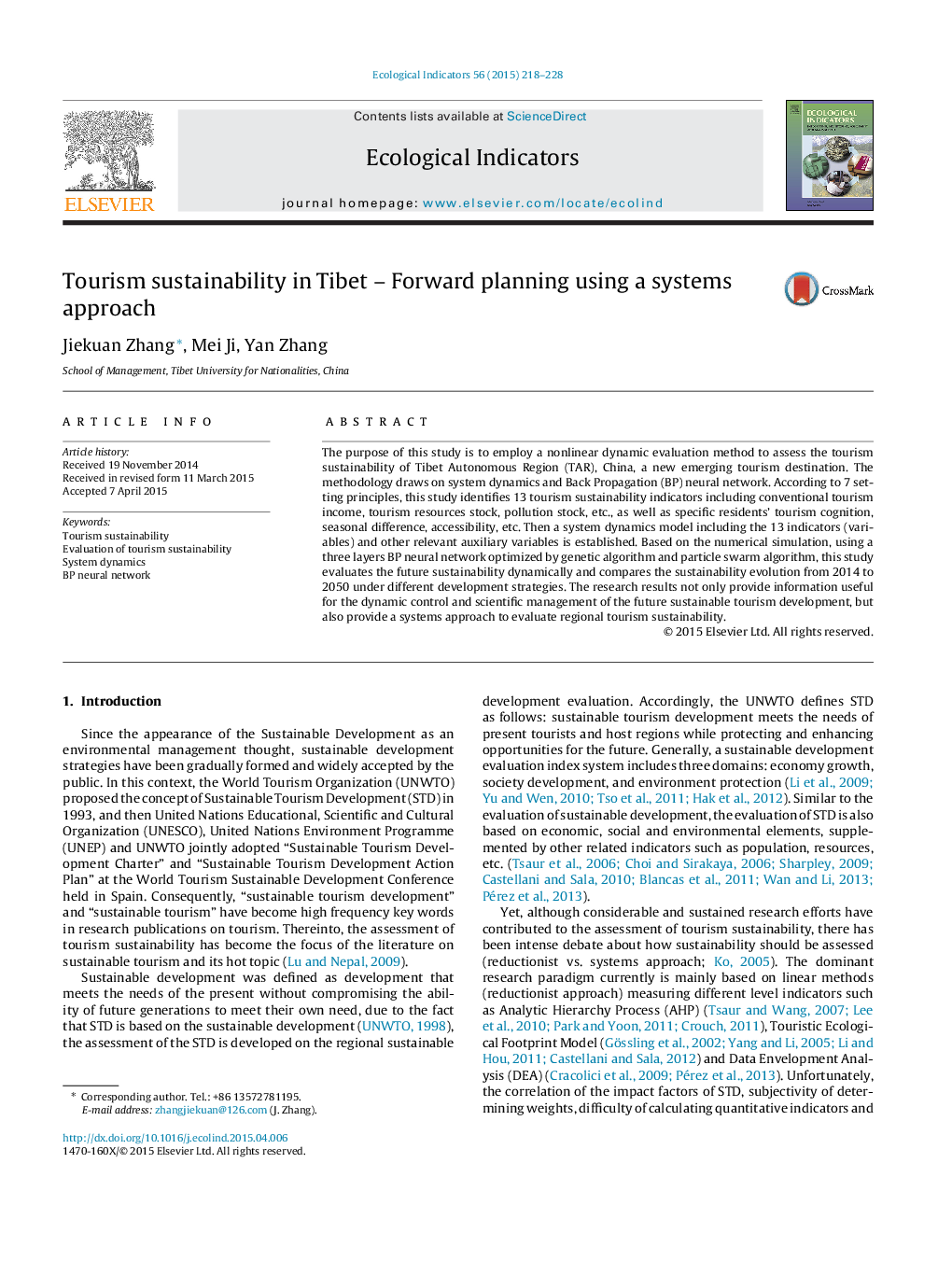| Article ID | Journal | Published Year | Pages | File Type |
|---|---|---|---|---|
| 6294364 | Ecological Indicators | 2015 | 11 Pages |
Abstract
The purpose of this study is to employ a nonlinear dynamic evaluation method to assess the tourism sustainability of Tibet Autonomous Region (TAR), China, a new emerging tourism destination. The methodology draws on system dynamics and Back Propagation (BP) neural network. According to 7 setting principles, this study identifies 13 tourism sustainability indicators including conventional tourism income, tourism resources stock, pollution stock, etc., as well as specific residents' tourism cognition, seasonal difference, accessibility, etc. Then a system dynamics model including the 13 indicators (variables) and other relevant auxiliary variables is established. Based on the numerical simulation, using a three layers BP neural network optimized by genetic algorithm and particle swarm algorithm, this study evaluates the future sustainability dynamically and compares the sustainability evolution from 2014 to 2050 under different development strategies. The research results not only provide information useful for the dynamic control and scientific management of the future sustainable tourism development, but also provide a systems approach to evaluate regional tourism sustainability.
Related Topics
Life Sciences
Agricultural and Biological Sciences
Ecology, Evolution, Behavior and Systematics
Authors
Jiekuan Zhang, Mei Ji, Yan Zhang,
